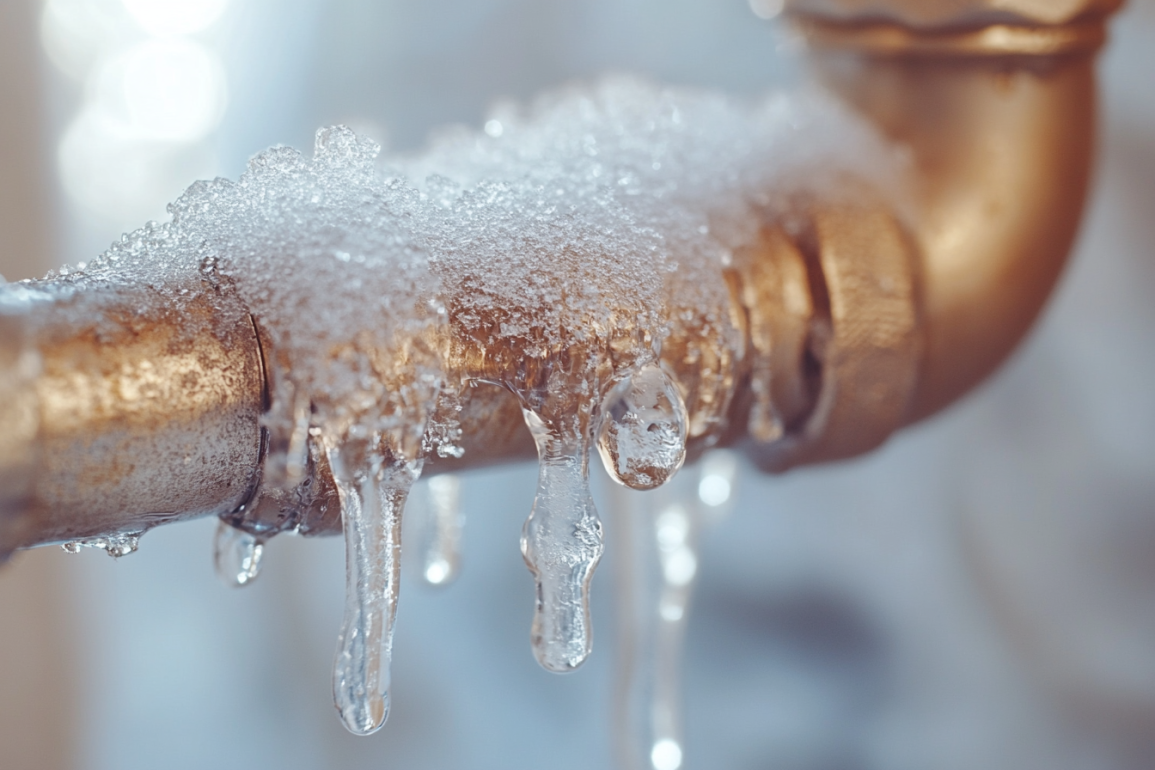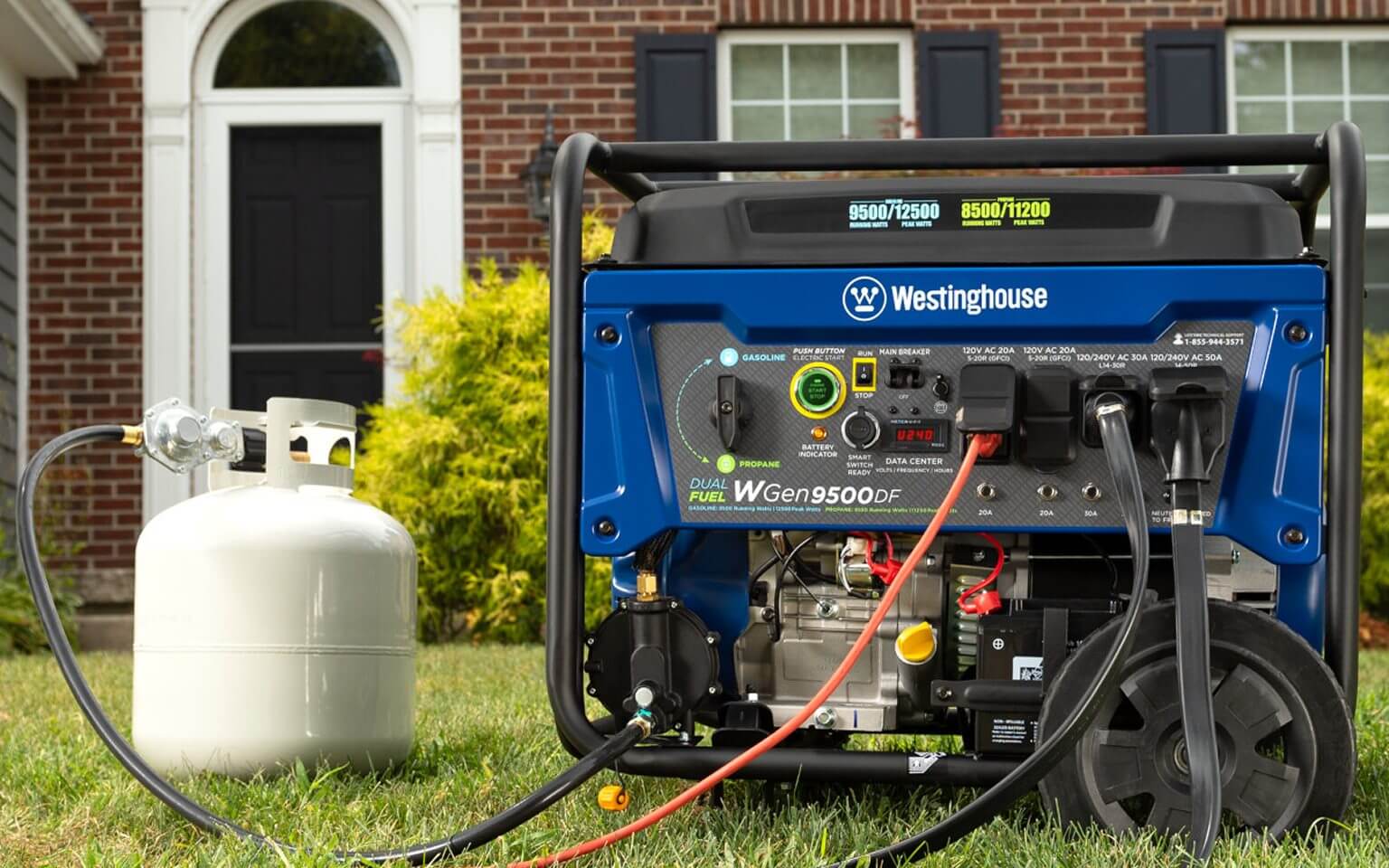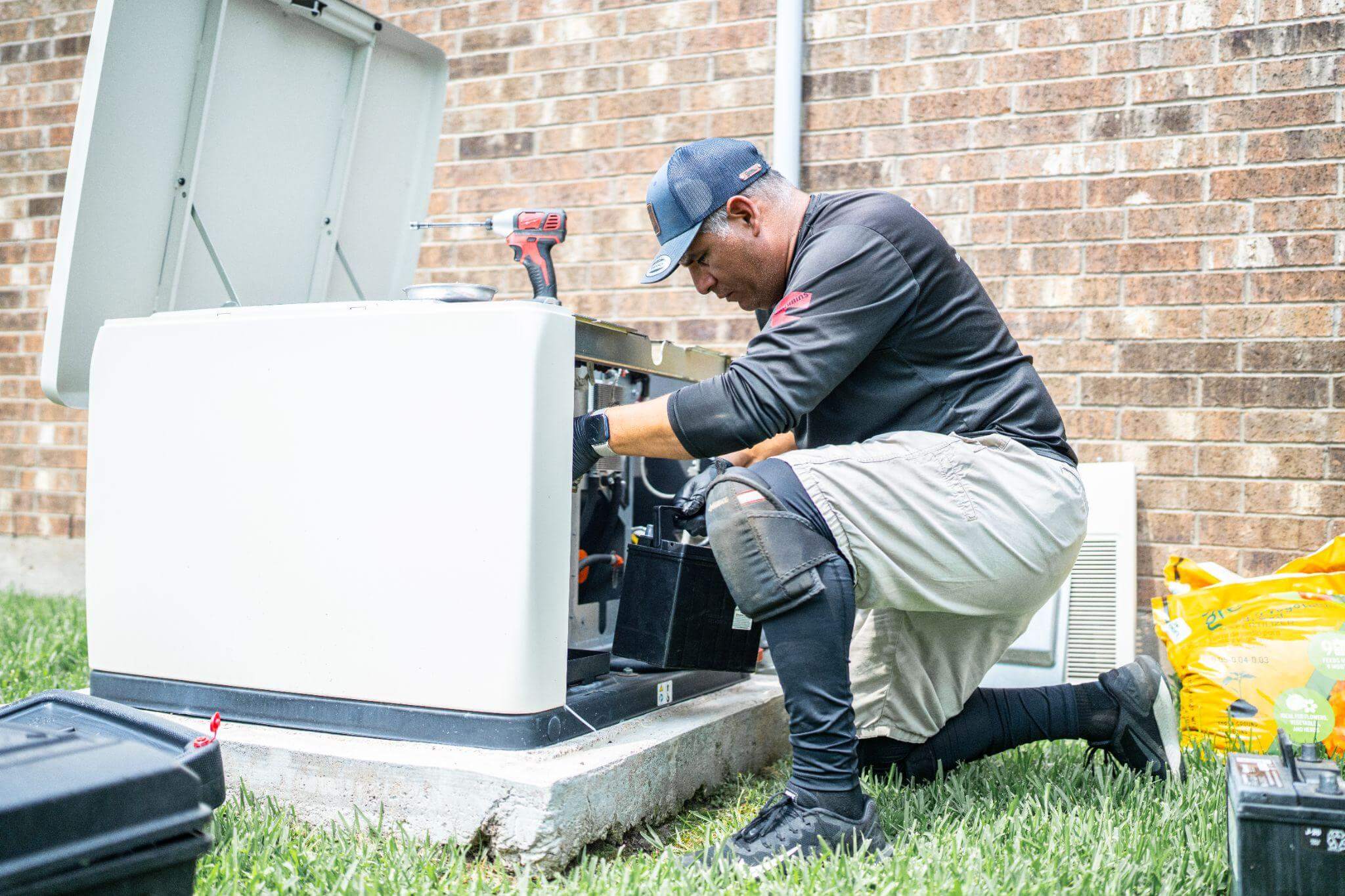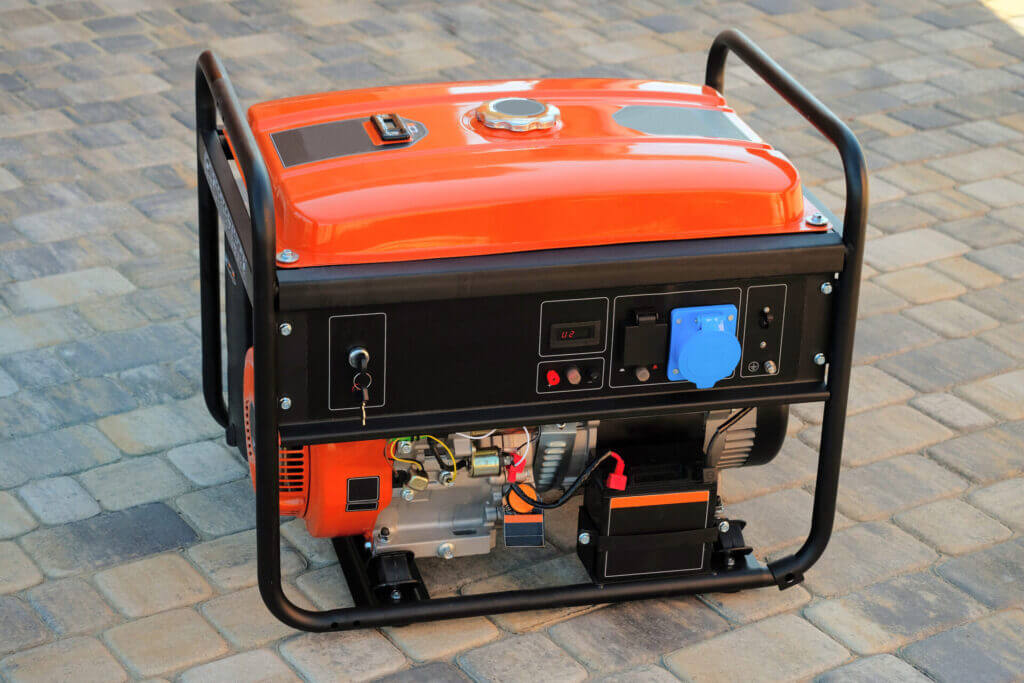Are you doing a plumbing project?
Modernize can pair you with three to four pros in your area, so you can compare options and save time and money.
Avoiding Frozen Pipes This Winter
As winter approaches, homeowners need to protect their plumbing from freezing temperatures. When pipes freeze, the expanding water inside them can cause cracks or bursts, leading to expensive damage. This guide explains why frozen pipes are a problem and how to keep pipes from freezing throughout the winter months.
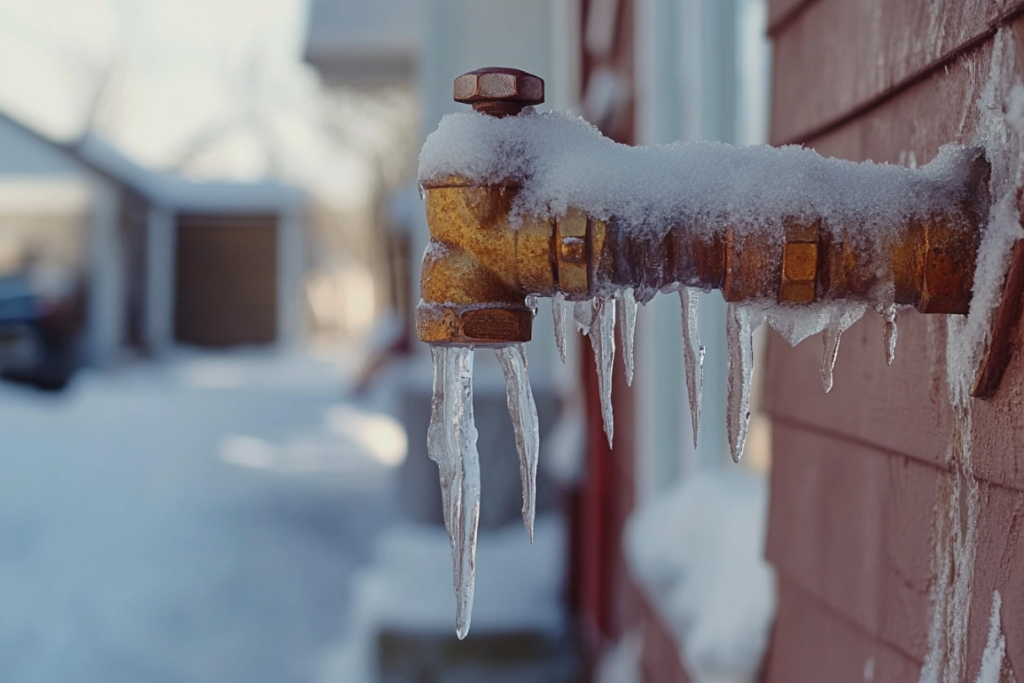
How to Keep Pipes from Freezing
Insulating your pipes, keeping your heat on, keeping water moving, sealing cracks, and disconnecting outdoor hoses are some of the most effective ways to keep pipes from freezing.
Insulate Pipes
The most effective way to prevent frozen pipes is proper insulation. Insulate pipes in unheated areas such as basements, crawl spaces, attics, garages, and along exterior walls. Foam pipe sleeves or insulation wraps are easy and affordable solutions.
Keep the Heat On
Set your thermostat to at least 55°F (13°C), even when you’re away. Consistent indoor heat helps prevent pipes inside walls from freezing.
Let Faucets Drip
Letting faucets drip slightly during extreme cold keeps water moving and reduces pressure buildup. This can help prevent pipes from freezing and bursting.
Seal Cracks and Openings
Seal gaps, cracks, and drafts near pipes using caulk or insulation. Preventing cold air from entering helps keep pipe temperatures above freezing.
Disconnect Outdoor Hoses
Before freezing temperatures arrive, disconnect and store garden hoses. Drain outdoor faucets and shut off interior valves supplying exterior spigots. Leave outdoor valves open so any remaining water can expand safely.
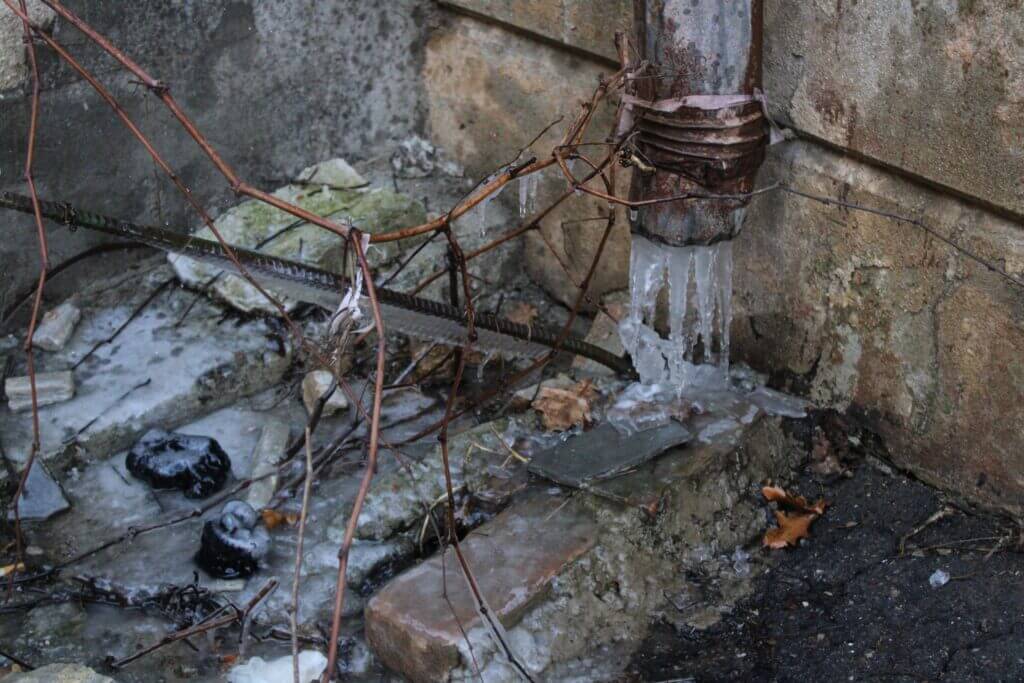
Find the Right Contractor for Your plumbing Project
Whether you’re ready to begin your project now or need some expert advice, our network of contractors are here to help. With a few simple questions, we’ll find the best local professionals for you
Why Do I Need to Prevent Frozen Pipes?
Preventing frozen pipes helps protect your home, your budget, and your comfort. Here’s why winter pipe protection is essential:
- Prevent structural damage: When water freezes inside pipes, it expands and builds pressure. This can cause pipes to burst, leading to leaks behind walls, ceilings, or floors.
- Avoid water damage: Burst pipes can release large amounts of water in a short time, damaging furniture, flooring, and personal belongings. Standing water can also lead to mold growth.
- Protect heating systems: Frozen pipes near HVAC components can reduce heating efficiency and interfere with warm air circulation.
- Reduce repair costs: Emergency plumbing repairs and pipe replacement can be expensive. Preventive steps cost far less than fixing winter damage.
- Maintain daily comfort: Frozen pipes can leave you without running water for bathing, cooking, or cleaning during cold weather.
General Winter Plumbing Tips
Here are a few general tips to keep your plumbing systems working smoothly:
Water Heater Maintenance
Water heaters work harder during winter. Drain sediment from the tank to improve efficiency and extend its lifespan. Set the temperature to about 120°F and test the pressure relief valve annually.
Sump Pump Check
If you have a sump pump, make sure it’s working properly before winter. Remove debris and test the system by adding water to the pit.
Know Your Main Water Valve
Locate your main water shutoff valve and make sure everyone in your household knows how to use it. Turning off the water quickly can minimize damage if a pipe freezes and bursts.
Prevent Septic System Freezing
For homes with septic systems, add insulation such as mulch over the tank and pipes. Regular water use helps keep waste flowing and reduces freezing risk.
Schedule a Professional Plumbing Inspection
A licensed plumber can identify vulnerable pipes, small leaks, or insulation gaps before winter sets in. Professional inspections help prevent emergency repairs during extreme cold.
Being Prepared Is the Best Way to Protect Your Pipes
Preparing your home’s plumbing for winter is one of the best ways to avoid frozen pipes and costly repairs. By following these prevention tips and staying proactive, you can protect your plumbing system and keep your home running smoothly all winter long.
Find the Right Contractor for Your plumbing Project
Whether you’re ready to begin your project now or need some expert advice, our network of contractors are here to help. With a few simple questions, we’ll find the best local professionals for you
Reviews from Real Homeowners
Welcome to Homeowner Resources! We are the Modernize blog. Modernize pairs more than 3 million homeowners a year with pre-vetted contractors in their area. This blog started because we believe homeowners should know everything about their homes, from how their HVAC works to which front door colors they might love. On Homeowner Resources, you can find information on every part of your home, right down to how you can negotiate with contractors to get the best price. Here's more about the blog.
Need a contractor? Learn more about how Modernize finds the right pro for you.
